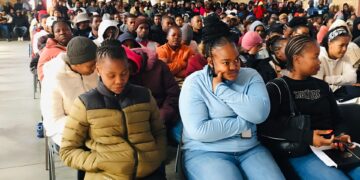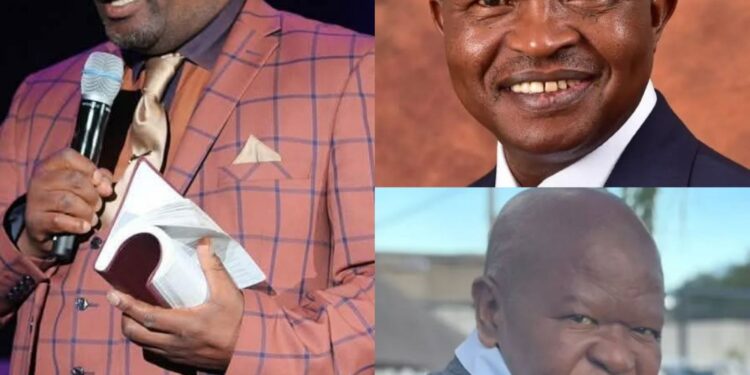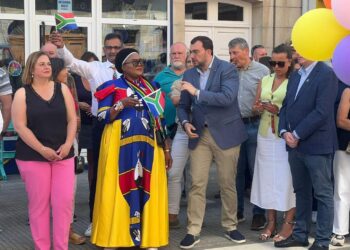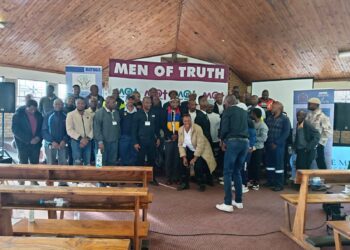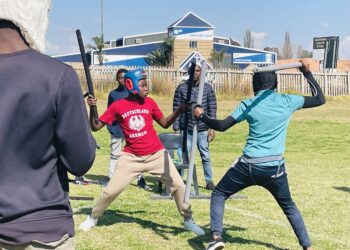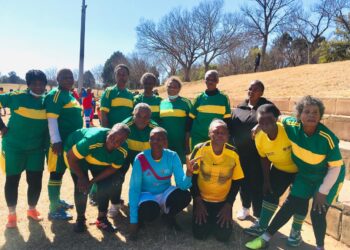July: A Dark Month for Mpumalanga as Three Icons Fall — David Mabuza, Veli Mahlanga, and Dr SD Gumbi Honoured with State FuneralsMBOMBELA–
Growing up, I knew a state funeral as “umcimbi wase TV”, the kind of funeral you only saw on television. Until one quiet Sunday morning in our village, when 73-year-old Gogo Grace Mhlanga called her grandchildren to sit with her by the fireplace.
She had just seen a grand funeral on TV, flags flying at half-mast, soldiers marching, and mourners in black suits.
“That’s a state funeral,” she said softly. “Only special people get that kind of send-off.”
Her youngest grandchild, Qhawe, looked up and asked: “Gogo, who are these special people?”
And so began a story worth telling. For Mpumalanga, the month of July was a dark one, three icons had fallen, each honoured with state funerals.
But not every farewell is the same. Some funerals make a nation pause, lower the flag and reflect.
But who receives this higher honour?
In South Africa, a state funeral is the most official and honoured way of bidding farewell to special people, as gogo would call them. It’s reserved for individuals who have served the nation with distinction, people whose lives shaped our democracy, strengthened our institutions, or uplifted communities.
But not every funeral with flags and speeches is the same. There are different categories, each with its own meaning and criteria.
Category 1 State funerals
At the highest of these funerals is category 1. These are granted to Presidents, former Presidents, national heroes, and liberation icons.
These individuals gave their lives for freedom and equality, and when they die, the whole country remembers.
Think of Nelson Mandela — his funeral was not just for his family, but for the world. The military marched, heads of state gathered, and the people of South Africa mourned in unity. It was a national loss.
Category 2 State funerals
The second from the tier is category 2. These are reserved for current members of the National Executive, such as ministers and their deputy ministers, who die while still in office.These funerals include military honours, government coordination and official speeches.
Just recently, Deputy President DD Mabuza was granted a category 2 state funeral , which was confirmed by the President Cyril Ramaphosa.
Special Official or Special Provincial Official Funerals
Then, there are Special Provincial official funerals granted to leaders recognised at a provincial level. The key difference lies in the level of ceremonial honour and the approval process involved. Here in Mpumalanga, we’ve witnessed Provincial Official Funerals granted to two leaders who served the province with integrity and commitment.
Veli Mahlangu, a towering figure with a rich history both in the football and political fraternities. Apart from owning one of Mpumalanga’s formidable teams, Witbank Black Aces, he was influential in the country’s soccer body, the South African Football Association (SAFA). When he passed away on 03 July, the province came to a respectful standstill.
His funeral, attended by leaders and mourned by the public, became a symbol of gratitude. His coffin, draped in the national flag, reminded many that leadership is about service, not just status.
But the Special Funeral can also be granted to individuals in fields like arts, culture, religion or activism. Dr Simon Dingane Gumbi is one of those individuals who received a Special Official Funeral.
He was a prominent South African pastor, evangelist, and motivational speaker, widely known for his work with the Assemblies of God (A.O.G) church and his powerful sermons broadcast on Ukhozi FM.
He was also a gospel music composer, producer and a mentor to many established ministers. Dr Gumbi died on 14 July, after a long illness at the age of 75.
The Special Provincial Official Funeral granted to Dr Gumbi showed that you don’t need a title, you just need to be special and live a life that would touch thousands.
A Goodbye from the nation
As the fire crackled and her story came to an end, Gogo Grace looked at Qhawe and said, “A state funeral is not just about who died. It’s about how they lived, what they gave to the people, and what they left behind.”
So, the next time you hear the sirens of a state motorcade or see a flag at half-mast, remember: it’s a final thank you — not just from a family, but from a province, or an entire nation.
We reached out to the Office of the Premier and we were referred to the Department of Sport, Arts and Culture, as being responsible to initiate the process of a state funeral.
And finally, Sibongile Nkosi, the Mpumalanga provincial director of communications for the department, said she will respond. She needed more information from the national department, she said, but dilly-dallyed and never responded.
Thoughts or views from community
Do you believe community heroes should also be considered for official funerals? Write to us at info@hconline.co.za or 0813037023 and share your views.










